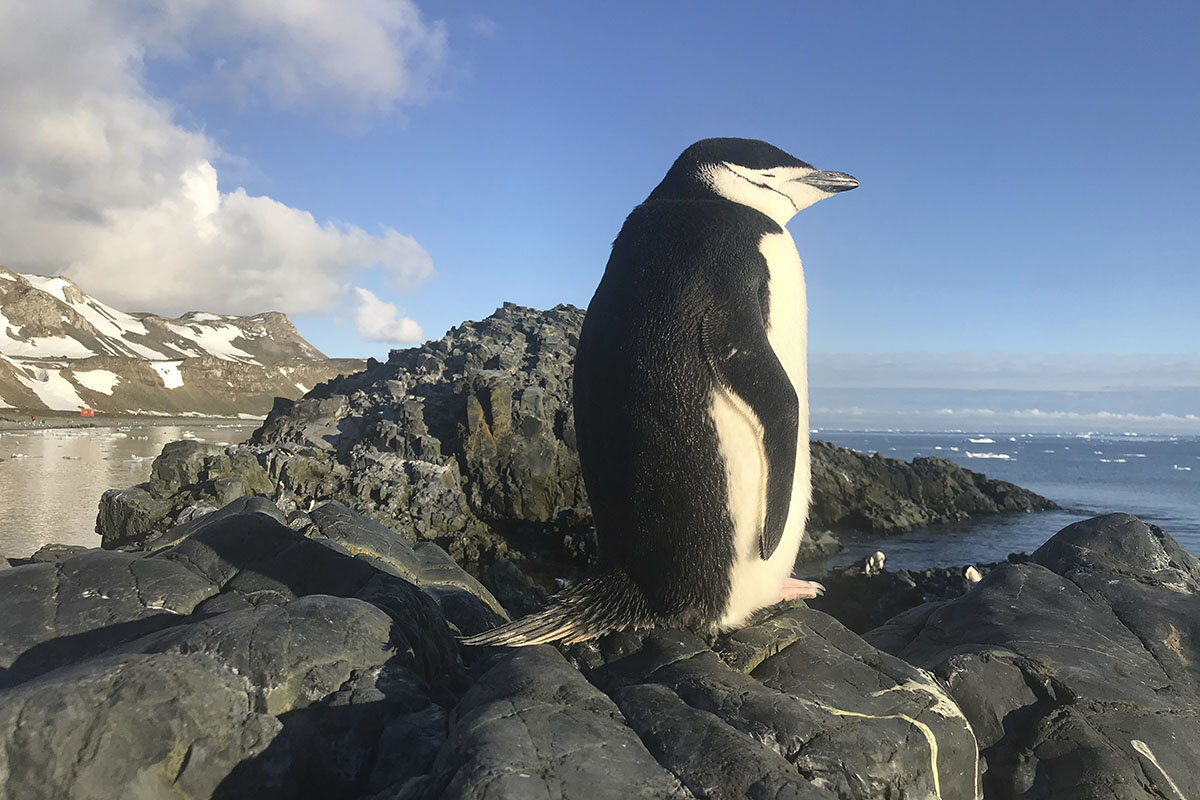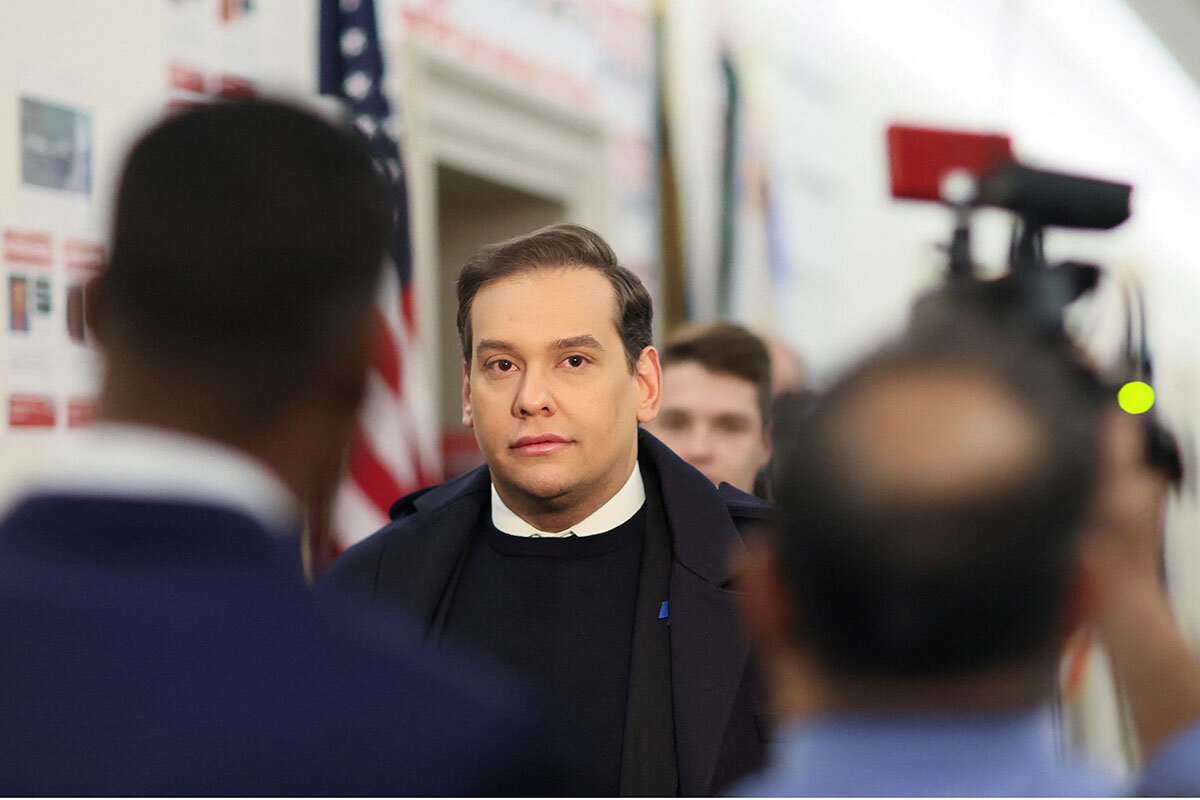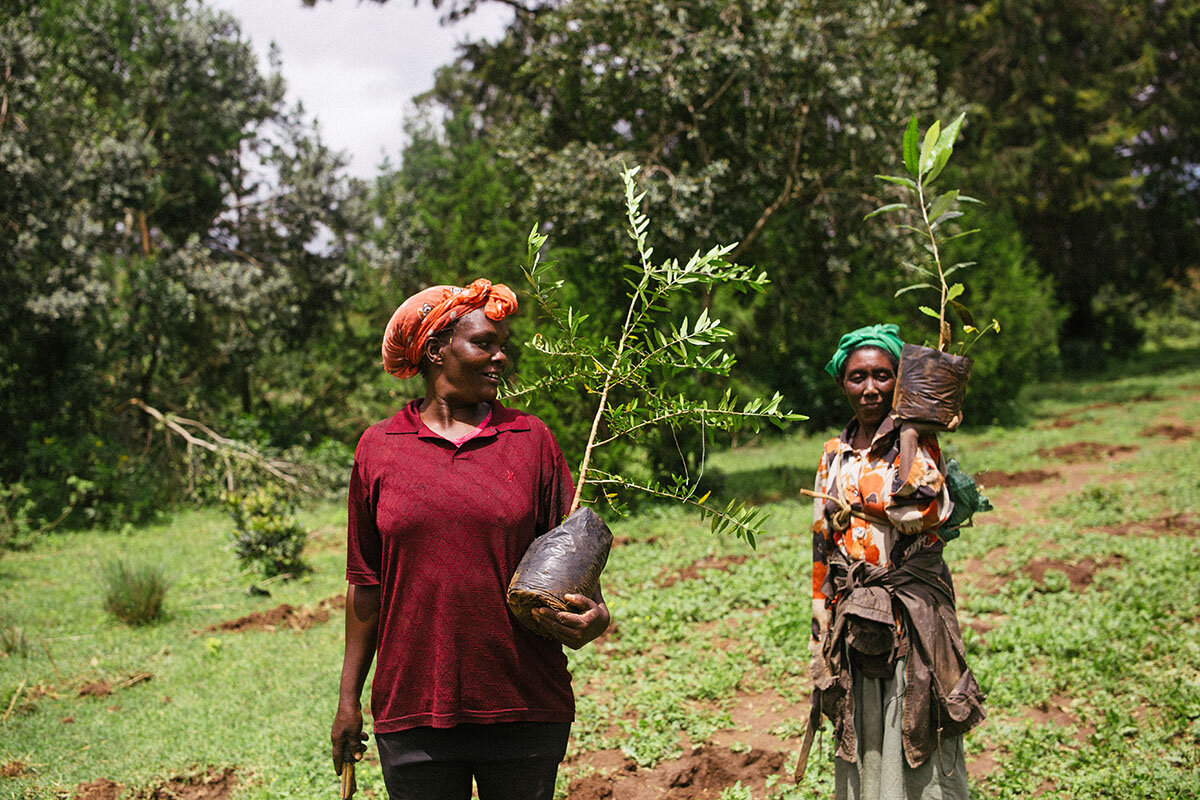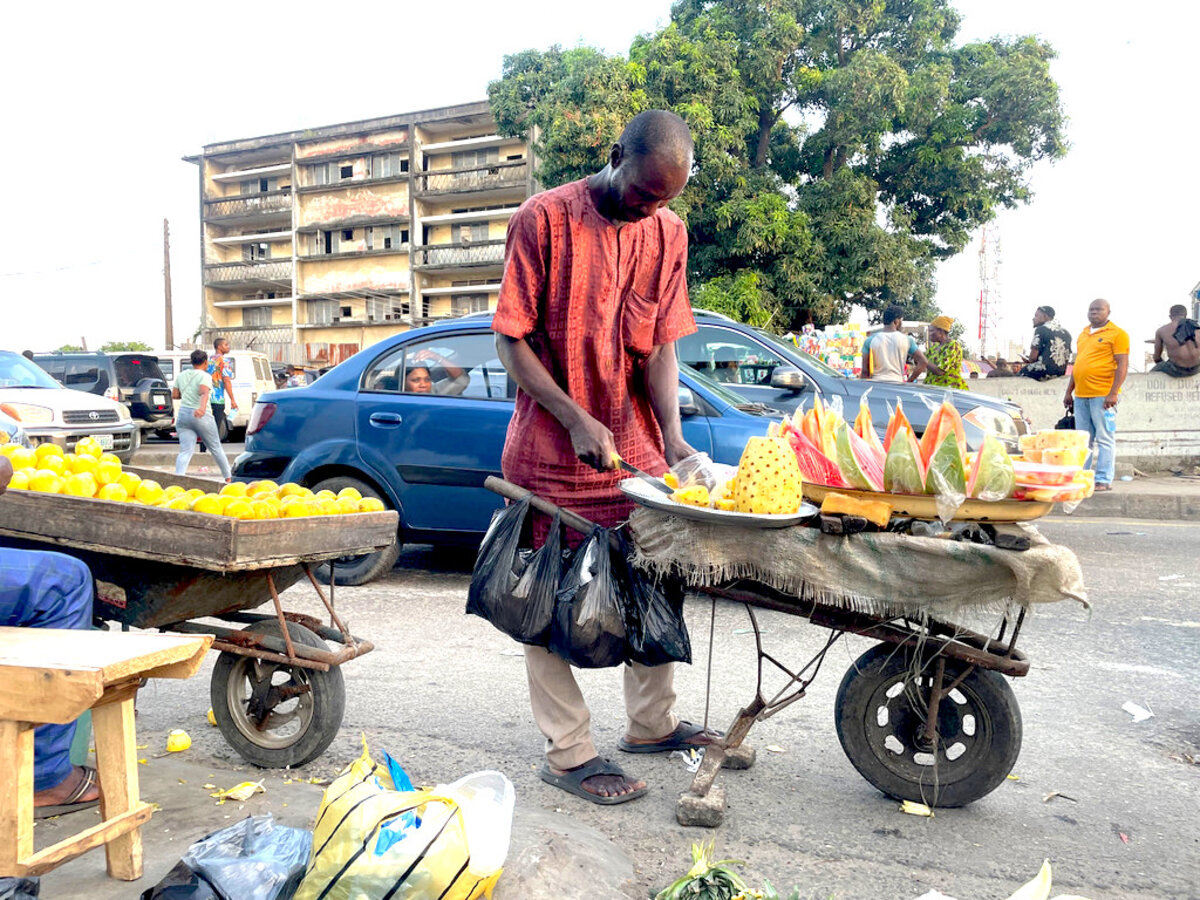Republican Rep. George Santos was expelled from the House of Representatives today. The extraordinary step comes as public trust in Congress is at a low ebb. Given the egregious nature of the allegations, lawmakers decided they couldn’t afford not to act.

Why is Christian Science in our name?
Our name is about honesty. The Monitor is owned by The First Church of Christ, Scientist, and we’ve always been transparent about that.
The church publishes the Monitor because it sees good journalism as vital to progress in the world. Since 1908, we’ve aimed “to injure no man, but to bless all mankind,” as our founder, Mary Baker Eddy, put it.
Here, you’ll find award-winning journalism not driven by commercial influences – a news organization that takes seriously its mission to uplift the world by seeking solutions and finding reasons for credible hope.
Explore values journalism About usMonitor Daily Podcast
- Follow us:
- Apple Podcasts
- Spotify
- RSS Feed
- Download
 Mark Sappenfield
Mark Sappenfield
In his two hours in the Schem household in Israel, Monitor reporter Howard LaFranchi formed a bond. The Schems’ daughter Mia had been abducted by Hamas, and Howard felt a particular kinship with Mia’s brother, Eli. Howard has three sisters himself, he told Eli. You can read the moving story he wrote here.
Today, there is joy. Mia was freed Thursday in the latest hostage swap. But Mia’s return is also a reminder of those who have not come home. Mia’s good friend, Elia Toledano, attended the music festival that was raided and is still in captivity.
Howard had told the family he was counting on meeting Mia someday. They promised him he could. “I try to think what it will be when [Mia] is home,” Eli said. At last, that day has come.
Already a subscriber? Log in
Help fund Monitor journalism for $11/ month
Monitor journalism changes lives because we open that too-small box that most people think they live in. We believe news can and should expand a sense of identity and possibility beyond narrow conventional expectations.
Our work isn't possible without your support.
Today’s stories
And why we wrote them
( 6 min. read )
( 6 min. read )
Thousands of Palestinians from Gaza were in Israel when the war began. They are now stranded in the West Bank, bound by tragedy at home and their inability to be with loved ones. But in their sorrow comes a different bond. “We were strangers before,” says one. “Now we are family.”
( 4 min. read )
Anti-terrorism is a cat-and-mouse game. The Hamas attack showed how cryptocurrency can be a tool for terrorism. Now, the United States is showing signs of cracking down. But in the long term, will it have the attention span to get ahead?
An appreciation
( 10 min. read )
Sandra Day O’Connor is rightfully remembered as a trailblazer for women as the first female U.S. Supreme Court justice. But at a time when the high court is losing public trust, another legacy burns just as bright: the fierce pragmatism of considering law through its effect on people’s lives.
( 5 min. read )
Conservancy can often be a delicate balancing act. In Mount Kenya, locals are caught between trying to protect pristine forest and helping desperate herders grazing on the mountainside.
Podcast

Right to arms, right to peace? Our writer explored a balance.
With hundreds of mass shootings each year, the United States seems to exhibit armed conflict at the citizen level like no other nation. Beneath a battle over access to high-powered guns, our writer wanted to probe access to something more universal: a desire for public peace.
What Might Curb Mass Shootings
The Monitor's View
( 3 min. read )
The world spends almost 10% of global economic output on keeping fossil fuel costs artificially low for consumers, according to the International Monetary Fund. Economists have warned for decades that these energy subsidies do far more harm than good. Yet governments are reluctant to drop them – and it’s not hard to see why. Last year, 148 countries saw more than 12,500 street protests over rising costs of living.
That is why Nigeria’s latest budget, proposed this week, bears scrutiny by world leaders trying to solve the braided crises of debt, poverty, and climate change. The fiscal blueprint rests on a bold stroke earlier this year in a country where soaring inflation coincides with habitual corruption and chronically low citizen trust in public institutions. In his inaugural address in May, President Bola Tinubu announced an immediate end to all subsidies for fossil fuels.
Ordinary Nigerians felt the pinch overnight. Yet five months later Africa’s most populous nation remains calm. One reason may be in the trade-offs. For years, Nigeria spent more to keep pump prices among the lowest in the world than it did on social services. Now those funds – equal to nearly a third of the total budget – are earmarked for public goods such as education and health care.
But Nigeria’s restoration of public confidence may rest as well on a deeper impulse toward honesty. “To improve the effectiveness of our budget performance,” Mr. Tinubu told parliament on Wednesday, “government will focus on ensuring value for money, greater transparency, and accountability.”
Nigeria’s cold-turkey approach is more aggressive than most advocates recommend. While economists draw a causal link between fuel subsidies and an index of miseries – poverty, corruption, cross-border smuggling, and even violent extremism – they warn that lifting the subsidies too quickly may deepen instability.
But such reforms are gaining global currency. Indonesia, Jordan, and Morocco have managed to reduce subsidies gradually without sparking unrest. A World Bank study published Monday found that 80% of 37,000 people surveyed in 12 countries stretching from Bolivia to Kazakhstan supported trading fuel subsidies for better schools, health care, and infrastructure.
Ending such subsides is also key to mitigating climate change. In October, Uzbekistan became the first country to sign a credit deal with the World Bank specifically designed to boost climate policy reforms, including ending fossil fuel subsidies. The International Institute for Sustainable Development has estimated that just eliminating such subsidies would reduce global greenhouse emissions by up to 10% by 2030.
If “we could see emissions reductions at 2%, or 3%, that ... [would likely be] the starting point of an unstoppable trajectory, which would only go faster and faster,” Johan Rockstrom, director of the Potsdam Institute for Climate Impact Research, told Reuters.
A critical byproduct of that shift, he and others note, may be a renewal of public trust. “Nigeria’s experience suggests that scrapping subsidies while avoiding public outcry requires exposing their many flaws,” the International Food Policy Research Institute observed this week in a blog post. In “countries where trust in government remains low, direct experience of the subsidies’ negative effects could go a long way toward bringing citizens on board.”
By exposing its citizens to the true cost of the energy they consume, Nigeria has embarked something more than an economic transformation. It is democratizing solutions to larger problems like climate change through transparency.
A Christian Science Perspective
Each weekday, the Monitor includes one clearly labeled religious article offering spiritual insight on contemporary issues, including the news. The publication – in its various forms – is produced for anyone who cares about the progress of the human endeavor around the world and seeks news reported with compassion, intelligence, and an essentially constructive lens. For many, that caring has religious roots. For many, it does not. The Monitor has always embraced both audiences. The Monitor is owned by a church – The First Church of Christ, Scientist, in Boston – whose founder was concerned with both the state of the world and the quality of available news.
( 3 min. read )
An openness to feeling and sharing God’s limitless love, ever shining, brings new horizons for meaningful interactions.
Viewfinder

A look ahead
Thank you for joining us. Next week, we’ll have our next installment in the Climate Generation series. Young people in tiny Barbados are leading the way on thinking about how to turn climate action into business opportunity.
We’ll also look at the culture of honor killings in Pakistan, where a teenage girl was slain apparently for posing in a picture with men who were not family members. We examine why these crimes persist, and where progress is happening.








